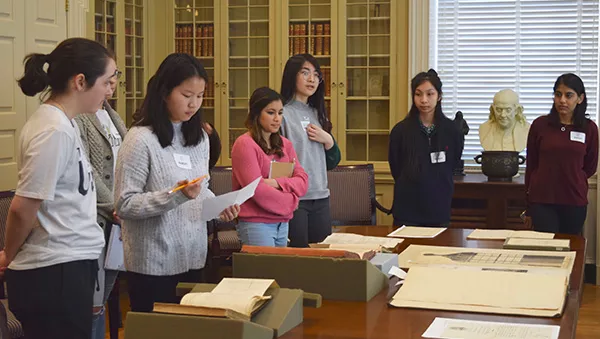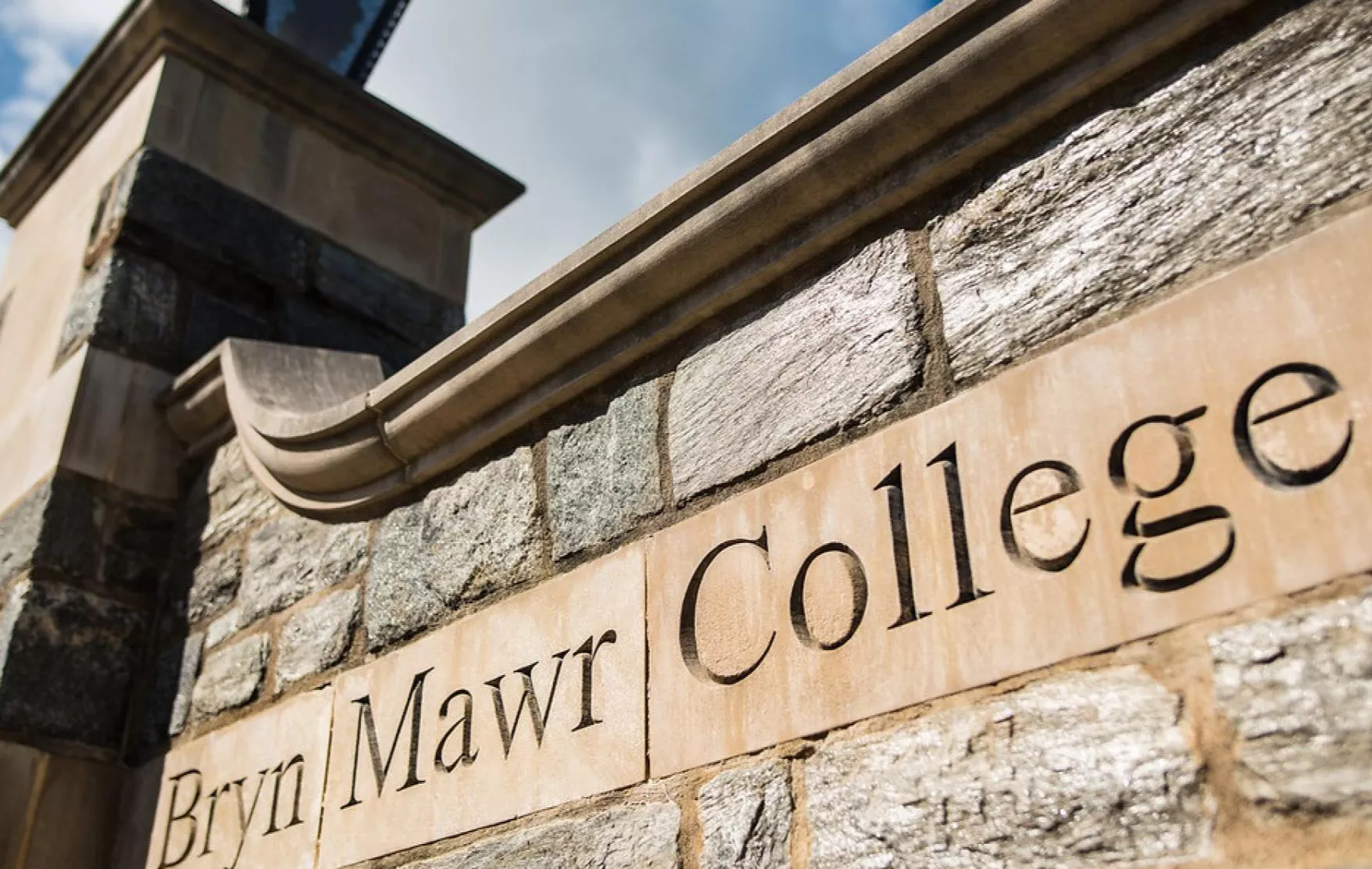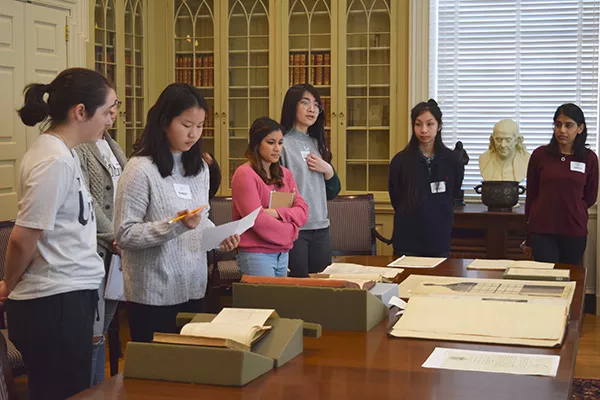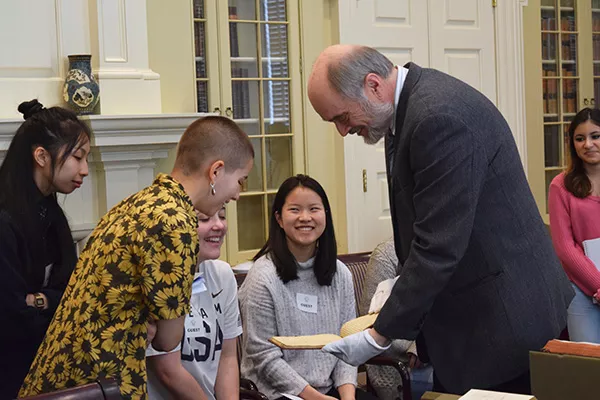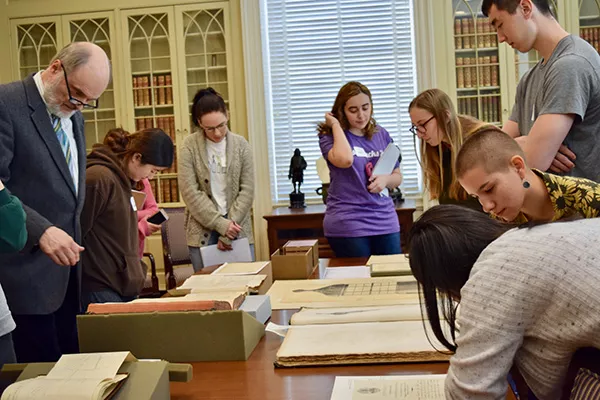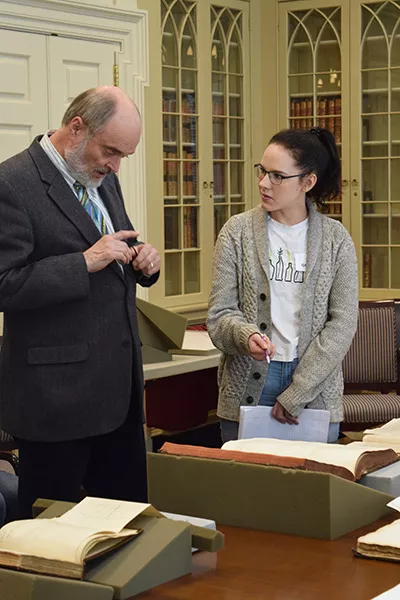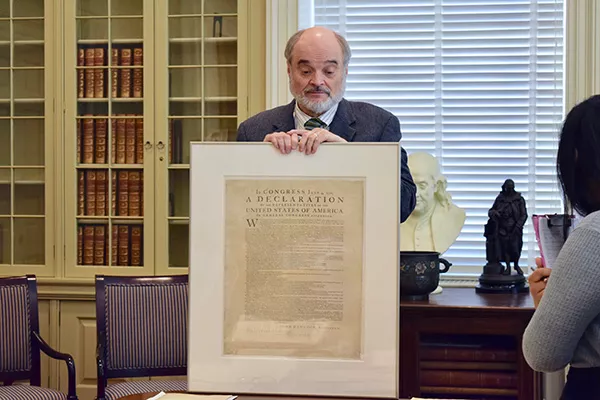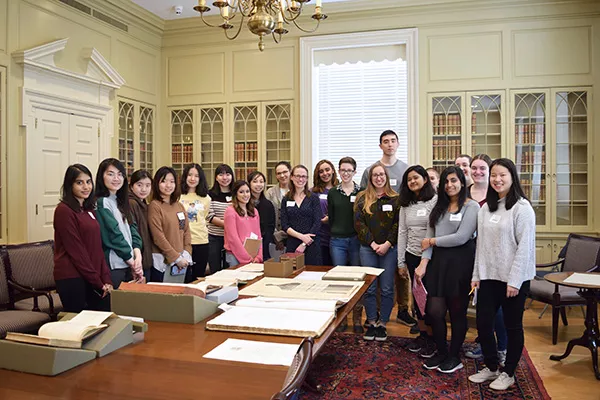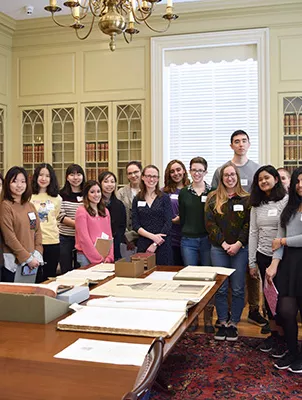
Taught every year by rotating faculty. The fall 2019 class will be taught by Assistant Professor of Philosophy Adrienne Prettyman.
During the spring semester, students in the course Science and Morality in Modernity toured the American Philosophical Society's library to explore how the Enlightenment in Europe influenced the formation of American democracy and shaped many of today's values. Students had the opportunity to gain a new perspective on the course material and draw connections among history, science, and values.
One question that the class explored is "what is liberalism?” Students addressed this question through the lens of early modern philosophy, roughly the period from Descartes in the 17th century to Kant in the late 18th century. In this section of the course, the class read philosophical defenses of religious freedom, tolerance, abolitionism, and women's rights. By engaging with museum staff as well as objects and manuscripts from the collection, students discovered how these debates helped to shape American democracy and today's political world. The opportunity to interact with material culture also provided a new perspective on the course material. For example, the course explored the foundations of the scientific method and theories of knowledge. At the museum, students interacted with scientific documents from the time period, and had a chance to think about how philosophical theories were put into scientific practice.
This trip was funded by a Philadelphia Engagement Grant.
Course Description: In this course, we'll explore answers to fundamental questions about the nature of the world and our place within it by examining the works of some of the central figures in modern western philosophy. Is the mind distinct from the body? Does God exist? What is a person? Can persons be free in a deterministic universe? What is knowledge? What is liberalism, and what is its value for society? These questions and others were addressed in "modern" Europe in the context of the development of science and religious wars. In a time of globalization we are all, more or less, heirs of the Enlightenment which sees its legacy to be modern science and the mastery of nature. This course explores the above questions and considers them in their historical context. Some of the philosophers considered include Descartes, Cavendish, Spinoza, Leibniz, Locke, Hume, Wollstonecraft, and Kant.
"Cool Classes" highlights new and interesting classes at Bryn Mawr. To see the full listing of Philosophy courses being offered, visit the department page. Visit the Cool Classes homepage to see more of these stories from across a range of programs and disciplines at Bryn Mawr.
